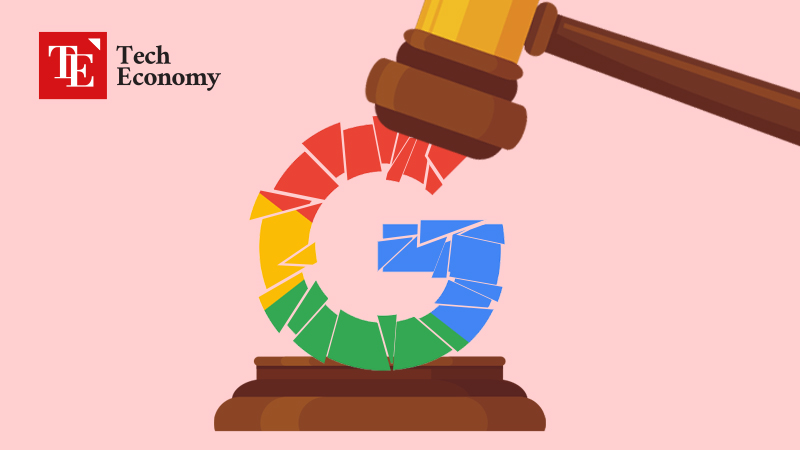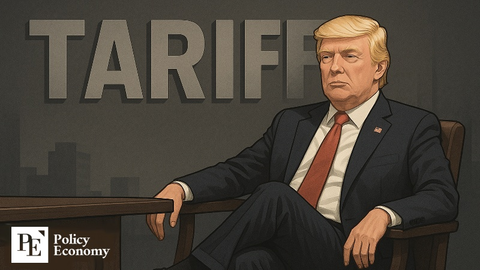U.S. Court Rules Against Breaking Up Google, Signaling Shifts in Big Tech Regulation Amid AI Boom
Input
Changed
Evolving Technology Redefines Monopoly Standards
Threat of Breakup Itself Underscored Market Power
New Phase for Antitrust Battles Across Big Tech

A U.S. court has rejected the Justice Department’s demand that Google sell off its Chrome browser, effectively ending the immediate threat of a corporate breakup. At the heart of the decision was a recognition that the rise of generative artificial intelligence (AI) has already weakened Google’s dominance in search. This rapid transformation of the market raises the prospect that ongoing antitrust actions against Meta, Apple, and other tech giants may also be interpreted in a new light.
Behavioral Remedies Over Structural Breakup
On September 2, Judge Amit Mehta of the U.S. District Court in Washington, D.C., issued a final ruling in the first phase of the case over Google’s alleged search monopoly. He upheld findings that Google engaged in unlawful conduct to maintain its dominance but concluded that forcing the company to sell off Chrome or parts of its Android business was unnecessary. “Google has acted as a monopolist to preserve its position in search,” he wrote, while adding that neither a Chrome divestiture nor a conditional sale of Android should be part of the final order.
The court determined that the Justice Department’s demand for a forced sale of Google’s core assets was excessive. Central to this reasoning was the idea that generative AI has emerged as a true alternative to traditional search. The ruling pointed to the rapid spread of conversational search tools like ChatGPT and Perplexity, which blur the boundaries of the conventional keyword search market. With these dynamics already eroding Google’s dominance, the court found that sweeping structural remedies such as breaking up Chrome or Android were disproportionate.
Instead, the court opted for behavioral restrictions. Google was barred from entering into exclusive or preferential contracts with device makers and browser providers, and was ordered to share certain search data with rivals to foster competition. Examples cited in the ruling included search queries and index metadata that show what users are searching for and what content exists on the web. Access to such data would allow new entrants to build indexes and improve ranking quality faster and at lower cost, reducing barriers to entry in search.

Justice Department Stresses Market Competition
Industry observers argue that the very fact Google faced the prospect of a forced breakup is itself a testament to the company’s power. In April, Google was found to have engaged in unlawful conduct in the online ad market, reinforcing its monopoly position. In that case, Judge Leonie Brinkema of the U.S. District Court in Virginia ruled that Google had violated antitrust laws in two of the three major areas of ad tech: ad servers and ad exchanges.
The court found that Google consolidated control over these markets through its “Ad Manager” platform. Ad servers determine where and how ads appear on websites, while ad exchanges serve as marketplaces for buying and selling ads in real time. Nearly 90 percent of online publishers rely on Google for ad distribution, and the company charged fees of 20–30 percent on ad transactions. In 2023 alone, Google generated $31 billion from this line of business, roughly 10 percent of its total revenue.
Judge Brinkema wrote that Google had, for more than a decade, used contractual policies and technical integration to tie ad servers and exchanges together, cementing its monopoly and shielding it from competition. She said Google imposed anticompetitive terms on customers and stripped away fair product features in order to entrench its dominance. The Justice Department hailed the ruling as a “landmark victory” in its ongoing fight to prevent Google from monopolizing the digital public sphere. It has consistently argued that restoring competition requires Google to divest parts of its business.
Antitrust Actions Risk Losing Force
Legal experts are closely watching how the Google decision could influence similar cases against other tech giants. Meta faces an FTC lawsuit alleging it monopolized social media through its acquisitions of Instagram (2012) and WhatsApp (2014). Court proceedings revealed that in 2018, CEO Mark Zuckerberg told colleagues in an internal email that a breakup of Instagram and WhatsApp could be forced within 5–10 years, suggesting the risk is far from hypothetical.
Apple and Amazon are also under investigation for allegedly stifling competition through their platforms. Apple has been accused of blocking third-party software to tighten control over its device ecosystem, while Amazon faces claims it undermined fair competition with merchants in its marketplace. Apple, in particular, may see regulatory pressure threaten its lucrative search agreement revenue—worth about $20 billion annually—from iPhone distribution.
Yet the Google ruling may set a precedent that undercuts the weight of such cases. By accepting Google’s argument that technological advances have eroded its market dominance, the court has opened the door for similar defenses from Meta, Apple, and others. Zuckerberg’s claim that TikTok and YouTube pose stronger competition than the FTC acknowledges highlights this dynamic. In an era of rapid technological change, the idea of regulating dominance may be losing relevance, underscoring how fragile antitrust actions can become when markets shift overnight.






















Comment